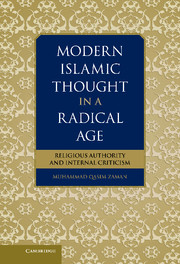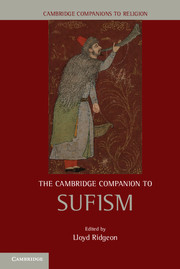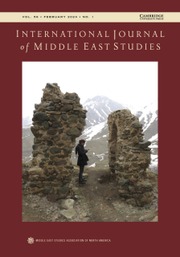The Origins of the Shi'a
Identity, Ritual, and Sacred Space in Eighth-Century K?fa
£90.00
Part of Cambridge Studies in Islamic Civilization
- Author: Najam Haider, Barnard College, New York
- Date Published: March 2012
- availability: Available
- format: Hardback
- isbn: 9781107010710
£
90.00
Hardback
Other available formats:
Paperback, eBook
Looking for an inspection copy?
This title is not currently available on inspection
-
The Sunni-Shi'a schism is often framed as a dispute over the identity of the successor to Muhammad. In reality, however, this fracture only materialized a century later in the important southern Iraqi city of Kufa (present-day Najaf). This book explores the birth and development of Shi'i identity. Through a critical analysis of legal texts, whose provenance has only recently been confirmed, the study shows how the early Shi'a carved out independent religious and social identities through specific ritual practices and within separate sacred spaces. In this way, the book addresses two seminal controversies in the study of early Islam, namely the dating of Kufan Shi'i identity and the means by which the Shi'a differentiated themselves from mainstream Kufan society. This is an important, original and path-breaking book that marks a significant development in the study of early Islamic society.
Read more- This path-breaking book challenges previous notions about the origins of the Shi'a thus shedding new light on early Islamic history
- Based on legal texts which date to the eighth century whose provenance has only recently been confirmed
- A book which will open up new paths of scholarship for historians of Islam and the Middle East
Reviews & endorsements
'Haider's study makes an important and much-needed contribution to the study of the origins of Imâmî and Zaydî Shiʿism as independent branches of Islam. Through his analysis of ritual practice, the legality of intoxicating drinks, and the emergence of distinct ritual locations, Haider produces a compelling case for the central role of legal discursive analysis of Kûfan ḥadîth in the articulation of Imâmî and Zaydî Shiʿi religious, political, and social identities. The Origins of the Shîʿa will be of interest to many in the fields of Islamic history, ritual studies, and law, and [Haider's] extensive use of charts to organize and explain his data and highly structured chapters make this complex historical data readable …' Karen G. Ruffle, Journal of the American Oriental Society
See more reviews'This study provides a significant contribution to the fields of Shīʿi studies, Islamic law and early history of Islam, but perhaps mostly to ḥadīth studies. Haider successfully implements a new method on Muslim traditions and reaches ground-breaking conclusions regarding the origins of early Shīʿism.' Seyfeddin Kara, Ilahiyat Studies: A Journal on Islamic and Religious Studies
Customer reviews
Not yet reviewed
Be the first to review
Review was not posted due to profanity
×Product details
- Date Published: March 2012
- format: Hardback
- isbn: 9781107010710
- length: 298 pages
- dimensions: 229 x 152 x 17 mm
- weight: 0.57kg
- contains: 2 maps 23 tables
- availability: Available
Table of Contents
Part I. Narratives and Methods:
1. Kufa and the classical narratives of early Shi'ism
2. Confronting the source barrier: a new methodology
Part II. Case Studies:
3. In the name of God: the Basmala
4. Curses and invocations: the Qunūt in the ritual prayer
5. Drinking matters: the Islamic debate over prohibition
Part III. The Emergence of Shi'ism:
6. Dating sectarianism: early Zaydism and the politics of perpetual revolution
7. The problem of the ambiguous transmitter: ritual and the allocation of identity
8. The mosque and the procession: sacred spaces and the construction of community
9. Conclusion.
Sorry, this resource is locked
Please register or sign in to request access. If you are having problems accessing these resources please email [email protected]
Register Sign in» Proceed
You are now leaving the Cambridge University Press website. Your eBook purchase and download will be completed by our partner www.ebooks.com. Please see the permission section of the www.ebooks.com catalogue page for details of the print & copy limits on our eBooks.
Continue ×Are you sure you want to delete your account?
This cannot be undone.
Thank you for your feedback which will help us improve our service.
If you requested a response, we will make sure to get back to you shortly.
×





